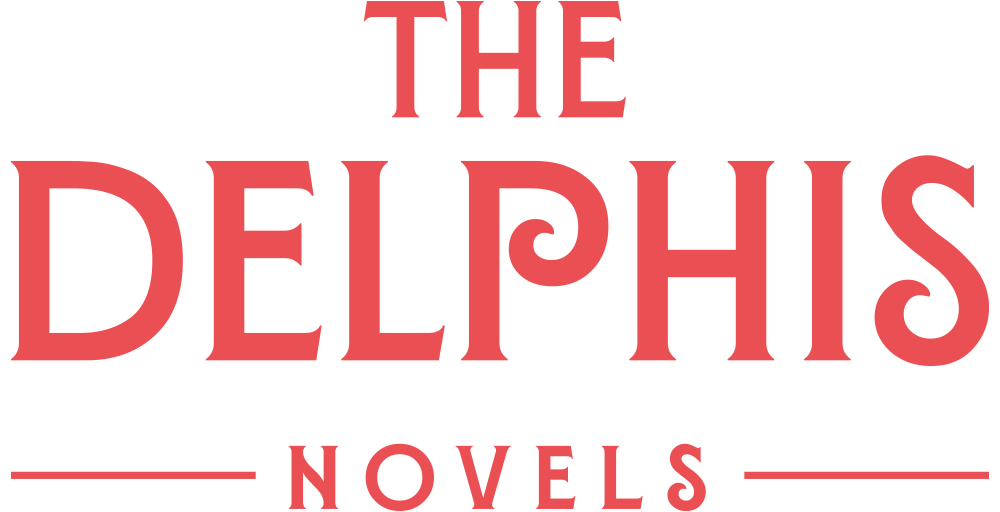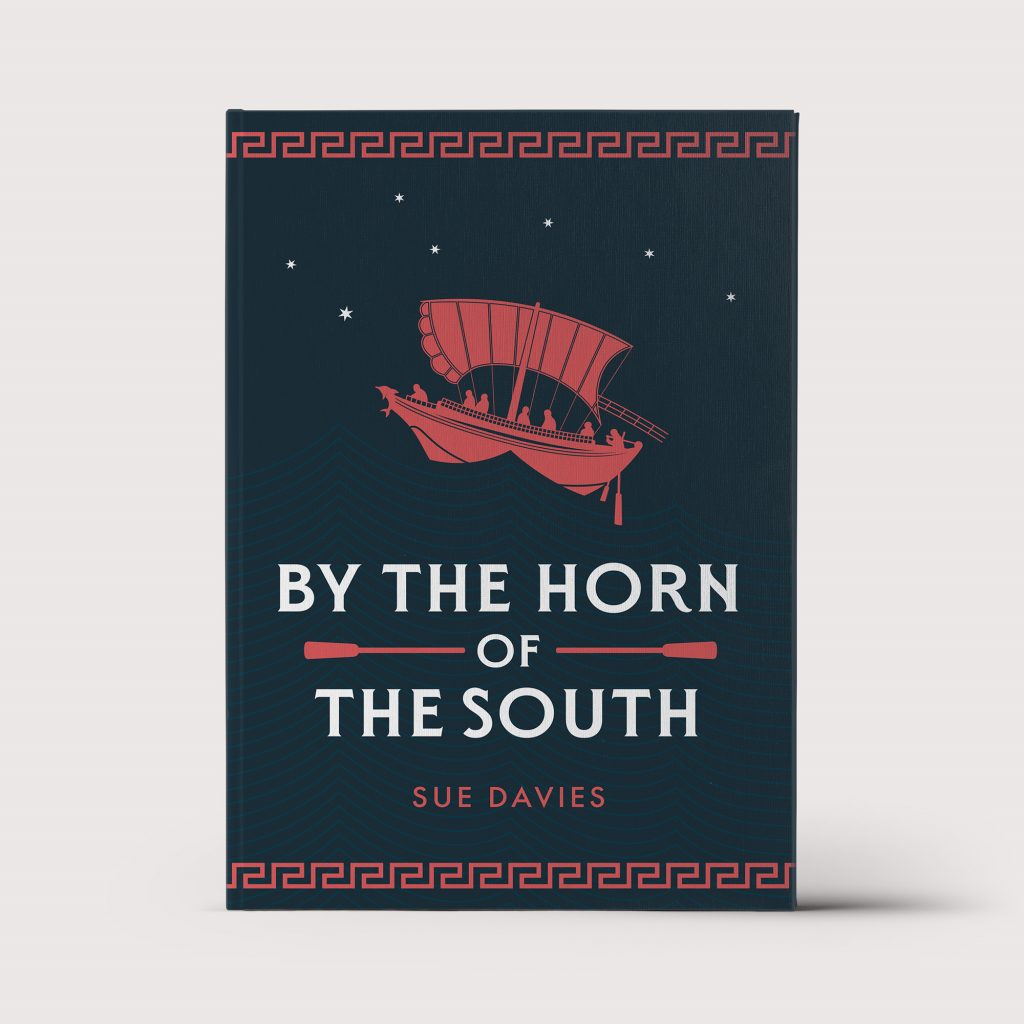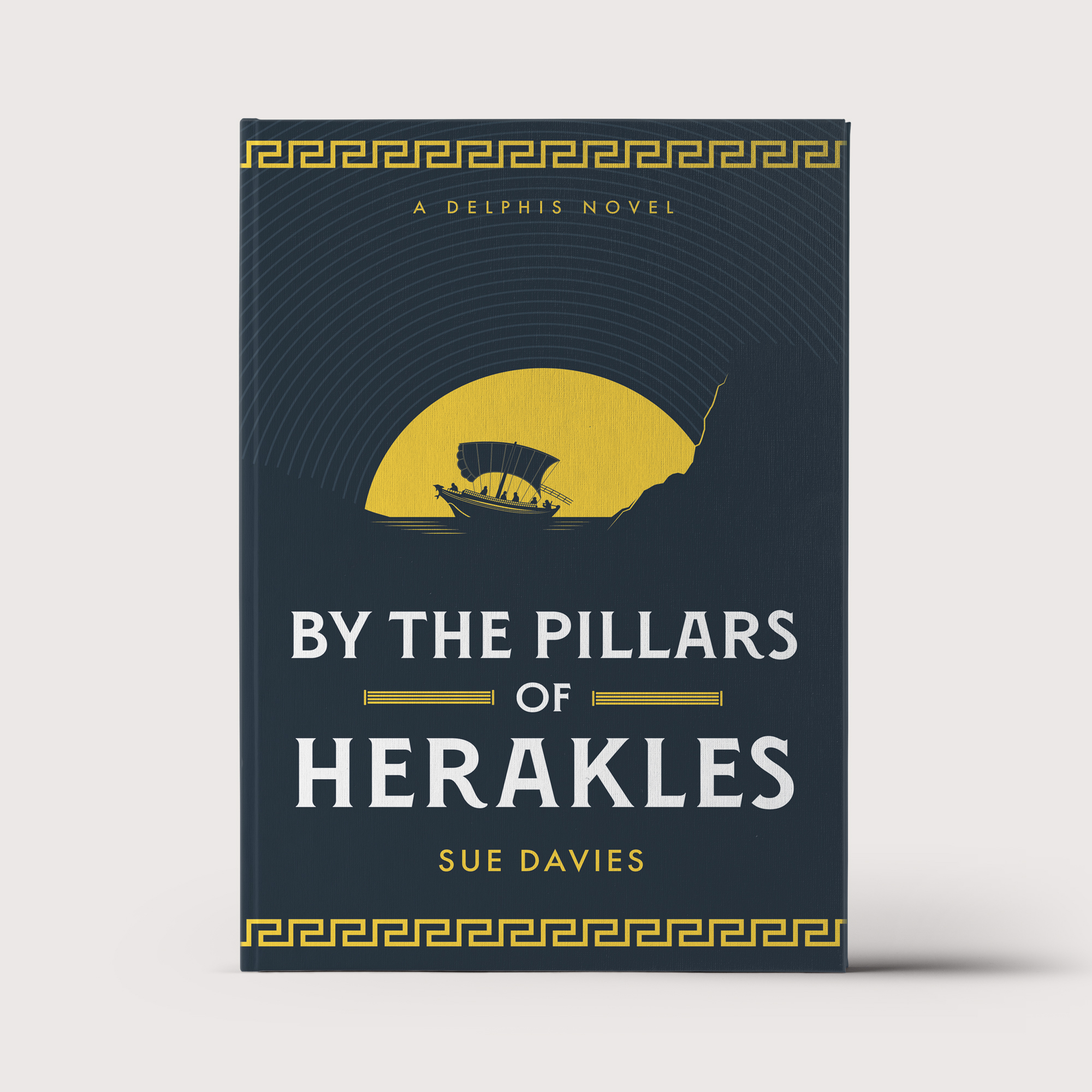The Delphis Novels
A whole half-sky has opened up above the navigator, graced by a trillion points of light, great and small, blue, yellow, white, red. What a marvel! This is the landscape that I know; this is the terrain I walk as truly as I walk this Earth.
The Delphis is a tub of a merchant vessel travelling some of the most dangerous waters in the ancient world.
On board is a volatile mix of personalities, religions and agendas. There is a famed navigator, a woman healer and a ship’s-boy from Carthage. There are assorted others, some deranged, others speaking with the authority of the gods. Most are simply infuriating.
Back at port, waiting for news of The Delphis, is a Carthaginian bureaucrat whose primary task is to destroy the vessel and all who travel in it. He and his lover-cum-secretary spend much of their time plotting how to sabotage it, scupper it or pour scorn on the achievements of the ship’s remarkable crew. He is not a man to be trusted.
Carthage was a sophisticated trading empire for more than a thousand years. The city state dominated sea lanes all across the Mediterranean, through to Africa and beyond. Hundreds of years before Christ or Muhammad; before Hellas, Greece, became a state or the Roman empire was established; at a time when the Old Testament was being written, and Europeans were inhabiting hill forts, that was when Carthage was a thriving republic, a mercantile powerhouse and the envy of the world.
No one, least of all the crew of The Delphis, wanted to get on the wrong side of Carthage.
October 2023
I loved so many aspects of this book (which I finished late in the night). The voyage, navigation, astronomy, science versus magic, types of enslavement, tender and loving relationships, all work brilliantly together. And I’m very much looking forward to the prequel now.
May 2024
It is difficult to specify who would enjoy this book more – there is truly something in it for everyone. Embedded within this suspenseful historical fiction are elements of ancient Greece, astronomy, science and magic.
September 2023
If you love historical fiction, I implore you to pick up this delightful indie read.
Book Club members, welcome! These books are for you!

About the Author
My early years were spent in Australia before moving to the UK in the 1970s. I subsequently worked at the BBC on programmes as diverse as Monty Python’s Flying Circus and Question Time. My main specialism was as a senior broadcast journalist making long form current affairs for BBC Radio Four and World Service. For this I travelled all over the world and received industry awards. My other forte was fast turn around material whenever there was a major crisis, for example, the Twin Towers tragedy or the subsequent bombings in London. In cases like that I would work all day and night. In my last years at the corporation I did a Masters degree in foreign relations with a view to working in international organisations and war zones. Then, unexpectedly, I became interested in the Classics.
On the face of it, my switch from News and Current Affairs to the ancient world seems strange. Yet politics, bureaucracy, logistics, financial and personal gain were as much a feature of life then as they are today. I hope that my journalistic experience in today’s world enhances the reader’s understanding of the past in an enjoyable and illuminating way.
I’m very grateful to my readers for the support they have given me during this process. Amongst them are Clara Bradbury-Rance and Rosemary Scott.
A note about names, places and spellings
For the sake of clarity about such distant days I have chosen to use commonly recognised names for most places, peoples or objects. Seafarers of the period were a mixed lot, as jumbled in origin as you would find on any large merchant vessel today. Multiple languages, dialects and divergent histories all had their own ways of locating and referring to towns, countries, individuals and landmarks. The passage of time has only increased that diversity.
The word ‘Phoenicia’ for instance is ancient Greek and refers to the eastern seaboard of the Levant, even though the people who lived there saw themselves as ‘Canaanites’. The same slipperiness of nomenclature is true when it comes to the name ‘Carthage’. The city was called Qart-Hadsht by those who inhabited it and Karkhedon by the ancient Greeks. ‘Carthage’, the name used in the west today, is Latin in origin. Aside from the word ‘Carthage’, I have resisted the temptation to Romanise anything.
Despite its huge popularity in the field of historical fiction, Rome was not the only ancient civilisation of note. In any case it didn’t exist as a state in the period in which my books are set. Instead I’ve used a smattering of ancient Greek names, like Herakles or Hekataois; or Punic names, the language of Carthage. Most of the rest can be recognised from maps, Persia for instance, Egypt or Tyre.
A few places along the coast of Spain do require a quick ID. Gadir is the modern city of Cádiz, Malaka is Málaga, Sexi is Almuñécar and Ibossim is Ibiza. The Pillars of Herakles are the Straits of Gibraltar in today’s English speaking world, though the Carthaginians called the place the Strait of Calpe and the Romans titled them the Pillars of Hercules.
Contact Me
If you would like to use these books or research information from this website, I would very much appreciate a credit for it. The works are original and the research tailor-made.


